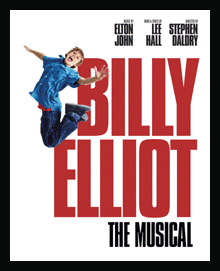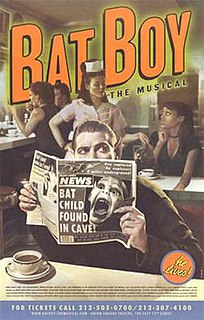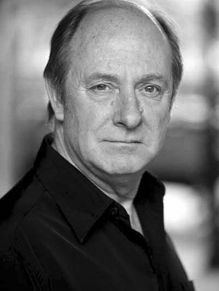| Operation Elvis | |
|---|---|
| Written by | CP Taylor |
| Characters | Malcolm; Alex / Mr Green / Jackie; Mam / Sister / Lynn; Michael |
| Date premiered | 1978 |
| Place premiered | Newcastle upon Tyne, England |
| Original language | English |
| Genre | Drama, Children’s theatre |
| Setting | Northgate Hospital, Morpeth |
Operation Elvis by C.P. Taylor is a play for children, first produced by the Live Theatre Company in Newcastle upon Tyne in 1978. [1] Taylor worked as a drama teacher at Morpeth’s Northgate Hospital, and used it as the main setting for the play. Critics have noted that, in keeping with his other works for children, Operation Elvis is notable for its engagement with complex social issues such as disability, being “written from the unsentimental standpoint that children's relationships are as complicated as those of adults.” [2]

A play is form of literature written by a playwright, usually consisting of dialogue or singing between characters, intended for theatrical performance rather than just reading. Plays are performed at a variety of levels, from Broadway, Off-Broadway, regional theater, to Community theatre, as well as university or school productions. There are rare dramatists, notably George Bernard Shaw, who have had little preference as to whether their plays were performed or read. The term "play" can refer to both the written texts of playwrights and to their complete theatrical performance.

Live Theatre formerly Live Theatre Company is a theatre and company based in Newcastle upon Tyne, England.

Newcastle upon Tyne, commonly known as Newcastle, is a city in Tyne and Wear, North East England, 103 miles (166 km) south of Edinburgh and 277 miles (446 km) north of London on the northern bank of the River Tyne, 8.5 mi (13.7 km) from the North Sea. Newcastle is the most populous city in the North East, and forms the core of the Tyneside conurbation, the eighth most populous urban area in the United Kingdom. Newcastle is a member of the UK Core Cities Group and is a member of the Eurocities network of European cities.
The original cast included Tim Healy, [3] Max Roberts, Denise Bryson and Brian Hogg, and the production was directed by Teddy Kiendl. The play has become a classic of Theatre for Young Audiences, revived by TAG Theatre Company, the Royal Shakespeare Company at the Almeida Theatre, M6 Theatre, Bruvvers, the Tricycle Theatre with Kevin Whately as Malcolm, and the Byre Theatre as part of the 1992 Edinburgh International Festival. [4] It was filmed with the original cast by BBC North East in 1980, [5] recorded for radio by BBC Scotland in 1982, and has been slated for film adaptation.

Timothy Malcolm Healy is an English actor, best known for playing Dennis Patterson in the television series Auf Wiedersehen, Pet, Les/Lesley in the ITV comedy-drama series Benidorm and Gastric in Still Open All Hours.
TAG Theatre Company is a theatre company established in 1967 in Glasgow, Scotland as the outreach arm of the Citizens' Theatre in Glasgow, and was known as the Citizens' Theatre for Youth.

The Royal Shakespeare Company (RSC) is a major British theatre company, based in Stratford-upon-Avon, Warwickshire, England. The company employs over 1,000 staff and produces around 20 productions a year. The RSC plays regularly in London, Newcastle upon Tyne and on tour across the UK and internationally.
Tim Healy described Malcolm as his favourite stage role: “We did 90 performances in eight weeks. We’d go to a school, unload the van, put the set up, do the play, knock it down and onto the next school... and they were the happiest days of my life.” [6]












